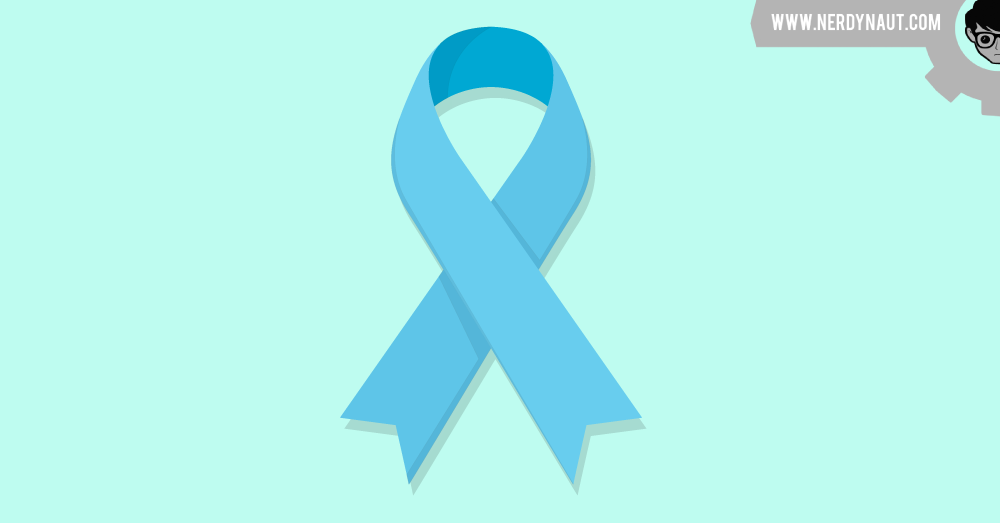
Prostate cancer is the second most common type of cancer amongst American Men, and every hour in the United Kingdom a man dies from the disease. It is therefore comforting to know that knowing the symptoms as well as altering a few things in your lifestyle can help you to lower your risk of developing this illness and even prevent it altogether.
One of the reasons why prostate cancer is often treated when it is at its most aggressive stage is because it often shows no signs or symptoms at all when it is in the earliest of stages. It is recommended that to make sure that the prostate cancer does not progress too much before it is discovered; men should go to their physician for regular examinations.
Increased frequency of urination as a symptom of prostate cancer, is caused by the prostate gland changing shape and pushing on the urethra which causes the sufferer to feel the need to urinate more frequently. Because of this, other symptoms related to urination can include an increased frequency at night times especially, pain whilst urinating as well as difficulties maintaining a flow of urine whilst urinating. Other symptoms include difficulties in achieving or maintaining an erection, and pain during ejaculation.
The symptoms
Before prostate cancer can take on an aggressive, or even mild form, it is important that men think about the problems that it can cause and try to prevent or treat the prostate cancer before it can develop into something that is life threatening. Prostate cancer is one of the major forms of cancer that causes death amongst men across the globe. It is painful, and can be a languished death. To prevent it, men should consider changing their lifestyle and diets, as well as looking out for the symptoms that it may cause.
Many men are anxious about visiting their physician about prostate cancer. They worry that they may be wasting the doctors time, or they may feel embarrassed at the thought of having an intimate examination carried out by another male (or even a female!). Even though it may not be a pleasant experience, doctors know all too well how serious aggressive forms of cancer can be, and they would recommend that you have regular exams in order to detect prostate cancer in its earlier stages than allowing it to grow. This is even more important as prostate cancer does not actually show any symptoms in its initial stages, and the only way it is detected is through physical exams.
You will be at a high risk of developing prostate cancer if you are over the age of 50. If you know of anyone else in your family who has had prostate cancer, you could be at risk of having a hereditary form of the disease. Likewise, if any females have had breast cancer, you could be at risk of developing any cancer in general, and this can include prostate cancer. Those who have diets that are particularly high in fatty products, including meat and dairy could be putting themselves at risk of developing prostate cancer.
When prostate cancer has had a chance to develop, and the prostate gland begins to grow and change shape, it can put pressure on the urethra, causing problems with urination. Pain and increased frequency of urination are some of the first problems that you may notice. An increased frequency, especially at the night time can be easily noticed. An inability to maintain a steady stream of urine during urination is another symptom. As well as this, sufferers often will have difficulties in maintaining an erection, and often feel pain whilst ejaculating. Sometimes, prostate cancer can cause total impotency.
Due to the possibility of prostate cancer spreading to other parts of the body, other symptoms to be wary of are pains in the lower back, which can cause weakness in the legs. Becoming incontinent, in the bladder or bowel area can also be a cause of concern to indicate that the cancer is spreading. A loss of weight is a frequent symptom of a spread of prostate cancer and pain in the hip area is also fairly common. Prostate cancer is not only unpleasant but it is also highly life threatening, and you should ensure that you maintain good communication with your physician about it.
How to deal with it?
If prostate cancer is not discovered in time, there is a risk that it could spread to other parts of the body, so there are other symptoms to be aware of. These can include painful vertebrae, as the cancer spreads through the lower back, pain in the pelvis and well as pain in the rib cage area. Because prostate cancer that has spread to the lower spine could put pressure on the nerves in the spinal chord, a sufferer may begin to experience a loss of bladder control, incontinence of the bowel, as well as a difficulty in standing.
To help improve the overall health of the prostate gland, there are some things that men can do. This would not guarantee to completely avoid prostate cancer, but it could help to reduce the risk of developing it. Walnuts and pomegranates are a super food, which can actually slow the growth rate and reduce the size of prostate cancer. Flavones and phenylpropanoids in these foods can also prevent the cancer cells from spreading to other areas of the body.
Omega 3 is thought to reduce the risk of developing prostate cancer, as some studies have shown that men who have a regular intake of these fatty acids are less likely to develop the cancer than those who don’t. Vitamin D, whilst not fully researched is often recommended as a way of treating prostate cancer.
Coffee and green tea are proven drinks that could actually prevent prostate cancer from developing due to an ingredient called Polyphenol E, which reduces levels of the hormones related to prostate cancer. Exercising, maintaining a healthy weight and eating a proper diet can vastly reduce the chances of prostate cancer from occurring, because this will lower cholesterol levels. Apart from it, learn to be happy; spend time in things that you enjoy. Spend time with friends, play poker online, party, have fun and just like a normal life and pray for the best.




